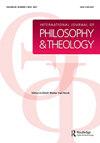Why the divine purpose theory fails: a conversation with Thaddeus Metz
IF 0.3
0 PHILOSOPHY
International Journal of Philosophy and Theology
Pub Date : 2021-10-20
DOI:10.1080/21692327.2021.2002713
引用次数: 1
Abstract
ABSTRACT Thaddeus Metz’s new book ‘God, Soul and the Meaning of Life’ presents a brief analysis of supernaturalist views about the meaning of life – my specific concern being the Divine purpose theory. While the view locates meaning in the fulfilment of some divine mandate, I show that this theory is, at best, unattractive. In this essay, I challenge the view that a belief in God is not necessary for the Divine purpose theory to be viable. I show that if we were to agree that a belief in God is inconceivable, then a theory built on such a belief is, at best, wishful thinking. Arguing from a subjectivist perspective, I make clear the fact that any recourse to a godly mandate as what makes life meaningful inadvertently assumes an extrinsic and instrumental character, which makes such a pursuit an unattractive form of meaningfulness. Finally, I show that the God purpose theory is much too narrow as it fails to capture other paths to meaningfulness that do not involve a recourse to God, and also that any assigned purpose is unnecessary (and, therefore, unattractive), if God is all-knowing, all-powerful, etc.神圣目的论为什么失败——与撒迪厄斯·梅斯的对话
摘要:撒迪厄斯·梅斯的新书《上帝、灵魂与生命的意义》简要分析了超自然主义者对生命意义的看法——我特别关注的是神圣目的论。虽然这种观点将意义定位于某种神圣使命的实现,但我表明,这种理论充其量是没有吸引力的。在这篇文章中,我挑战了这样一种观点,即对上帝的信仰并不是神圣目的理论可行的必要条件。我表明,如果我们同意对上帝的信仰是不可想象的,那么建立在这种信仰之上的理论充其量只是一厢情愿。从主观主义的角度出发,我清楚地表明了一个事实,即任何求助于神圣的命令来让生活变得有意义的行为,都会在无意中呈现出一种外在的工具性,这使得这种追求成为一种没有吸引力的有意义的形式。最后,我表明,上帝目的论过于狭隘,因为它没有捕捉到其他不涉及求助于上帝的有意义的道路,而且如果上帝无所不知、无所不能,那么任何指定的目的都是不必要的(因此也没有吸引力)。
本文章由计算机程序翻译,如有差异,请以英文原文为准。
求助全文
约1分钟内获得全文
求助全文
来源期刊

International Journal of Philosophy and Theology
PHILOSOPHY-
CiteScore
0.30
自引率
0.00%
发文量
12
期刊介绍:
International Journal of Philosophy and Theology publishes scholarly articles and reviews that concern the intersection between philosophy and theology. It aims to stimulate the creative discussion between various traditions, for example the analytical and the continental traditions. Articles should exhibit high-level scholarship but should be readable for those coming from other philosophical traditions. Fields of interest are: philosophy, especially philosophy of religion, metaphysics, and philosophical ethics, and systematic theology, for example fundamental theology, dogmatic and moral theology. Contributions focusing on the history of these disciplines are also welcome, especially when they are relevant to contemporary discussions.
 求助内容:
求助内容: 应助结果提醒方式:
应助结果提醒方式:


